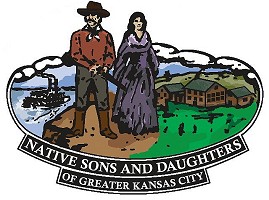Outstanding Kansas Citian Award
Bill Haw Sr. was a prominent Kansas City businessman, rancher, and philanthropist whose work left a lasting mark on both Kansas City and the Flint Hills region. Haw grew up in Bonne Terre, Missouri, and earned a degree in English at the University of Missouri, where he also participated in ROTC. After graduation, he served two years in the Army before returning to MU to pursue a master’s degree in finance. Before completing that degree, he was recruited by Commerce Bank in Kansas City, where he quickly established himself as a leader and executive during a successful 10-year career. In the early 1970s, Haw left banking to serve as CEO of National Alfalfa, an agricultural company on the verge of bankruptcy. He rebuilt it into National Farms Inc., which grew to become one of the largest cattle feeders in the country. His business success enabled him to purchase large tracts of pastureland in the Flint Hills, where he pioneered “intensive grazing,” a method of cattle ranching inspired by the historic migrations of American bison. Though initially controversial, his approach became an industry standard. In 2021, after decades in ranching, Haw sold the land but ensured its future protection. Partnering with The Nature Conservancy, he placed perpetual easements on the property to preserve the Flint Hills landscape from development. As he explained, “I don’t want it to remain perfect and unspoiled just for my lifetime, but forevermore.” Today, the Flint Hills land he safeguarded forms part of the 161,000 acres permanently protected by the Conservancy in Kansas, including six public preserves. Haw’s vision extended beyond ranching into urban preservation and redevelopment. In Kansas City, he played a central role in saving the historic Livestock Exchange Building, once the largest livestock exchange in the world and the anchor of the Stockyards District. By preserving and revitalizing the building, he ensured its continued role as a hub of business and culture. Building on that success, he went on to develop several additional properties in the neighborhood, helping to spark the area’s broader revival. Haw left a legacy of stewardship of land, history, and community that continues to benefit both Kansas City and the Flint Hills.
| ||||
|
The Native Sons created the "Outstanding Native Kansas Citian of the Year" award in 1973. Later, this was shortened to the "Outstanding Kansas Citian" award that endures still today. Learn more about this award and view a list of
|





 The Native Sons and Daughters of Greater Kansas City
The Native Sons and Daughters of Greater Kansas City